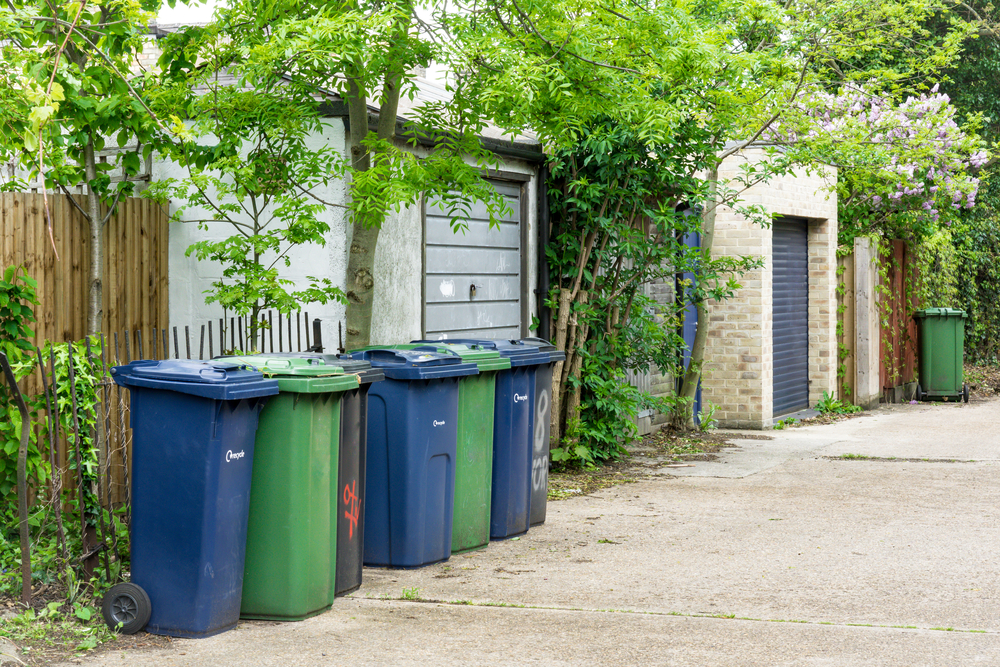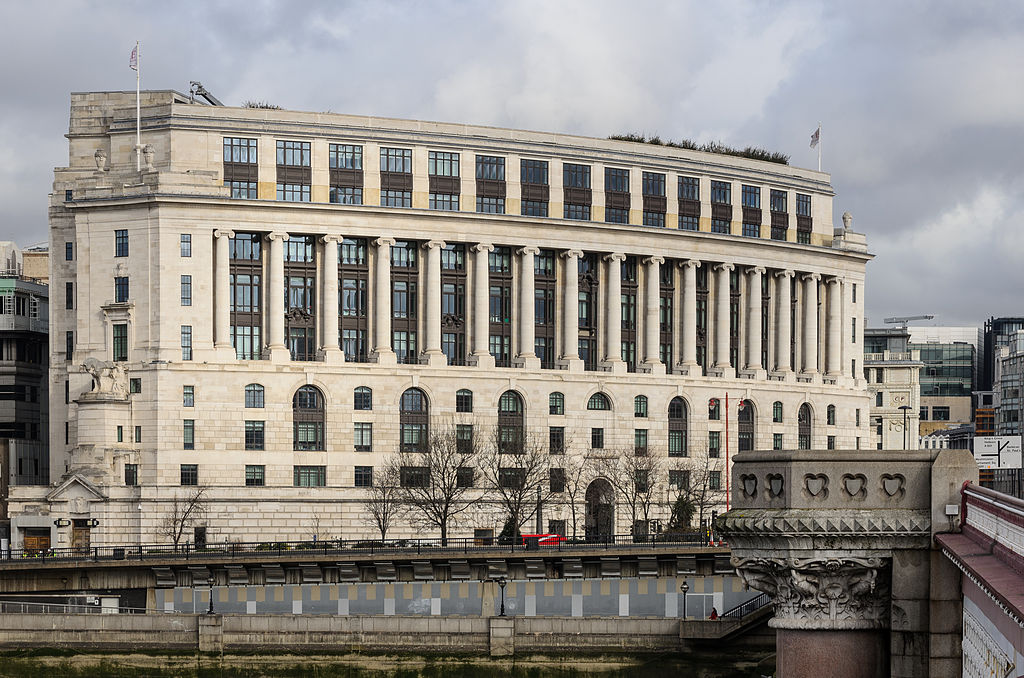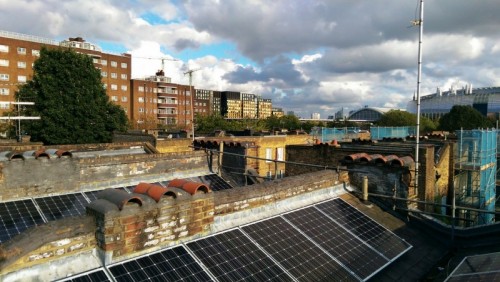Food waste battle, recycling reset, carbon neutral Unilever, household energy storage, Trump clean energy call, Canon boosts literacy, Ecometrica's rainforest monitoring, Paris backs bikes and Ethex's positive projects
Food waste battle stalling at household level
UK companies have hit or exceeded targets for curbing their packaging and food waste but the food waste battle is stalling among households. New figures from waste and recycling body WRAP show that 7.3m tonnes of household food waste was thrown away in 2015, up from 7m tonnes in 2012. The waste, which included 4.4m tonnes deemed to be edible, amounted to £13bn worth of food.
“It is clear that progress to reduce household food waste at a UK level have stalled,” WRAP said, blaming population growth, falling food prices and increased personal earnings for reducing pressures for people to avoid wasting food.
By contrast, the 50 corporate signatories to the Courtauld Commitment, a 10-year programme across the food supply chain that aims to cut waste and greenhouse gas emissions associated with food and drink, met or exceeded their targets, with grocery ingredient, product and packaging waste down 3%, recovery and recycling rates growing from 95% to 99%, and an 18,000-tonne increase in the amount of surplus food and drink redistributed for human consumption.
Steve Creed, director of business programmes at WRAP, said: “The three phases of Courtauld have been a game-changer in bringing businesses together to work on issues of resource efficiency and drive change within their own operations. Today’s results show the industry’s commitment to reducing their environmental impacts and the huge benefit of collaborative action, particularly in the supply chain.”
He added: “Reducing food waste in the home is incredibly challenging, given the complex reasons for it, the scale of food waste in the home and the lack of awareness, but it’s clear we all need to do more. WRAP has a plan to work with governments, signatories and consumers for greater public engagement through Love Food Hate Waste and interventions by signatories to Courtauld 2025.”

‘Local councils need help from business to boost recycling’

England’s local authorities need help from business to boost poor recycling rates and promote the circular economy, according to a new report from the Circular Economy Task Force, which is convened by the Green Alliance thinktank.
In a blog on the Green Alliance website, Jonny Hazell, co-author of the report Recycling reset, how England can stop subsidising waste, says blaming councils for England’s “dysfunctional” recycling system doesn’t address the source of the problem. Companies should also be taking more responsibility for the composition of their products and packaging and where they all end up. And they should be making sure their customers get the information they need to recycle properly.
“Councils are burdened with a disproportionate share of the responsibility for our waste and recycling. The dysfunctionality of this approach is highlighted by the fact that annual recycling rates in England fell for the first time in 2015. And, despite councils spending around £300m every year dealing with waste packaging, businesses that process waste materials are still struggling to get the right quality feedstock, contributing to a string of bankruptcies. And manufacturers that use recycled materials are frustrated by an inconsistent supply.”
Modelling by waste and recycling body WRAP suggests that if all local authorities collected the same set of materials, and maximised their quality, then recycling rates would go up 7% while costs would be cut by 2%.
Such a move to standardise waste collection would be easier to achieve if councils had some of their costs covered by the companies that create the packaging in the first place, via the producer responsibility fees collected by the Environment Agency. The report recommends that the companies that use recycled materials, design their packaging for recyclability and inform their customers on recycling pay lower producer responsibility fees than those who don’t. Councils should also be able to penalise those households that don’t recycle properly.
Unilever joins green gas revolution

One year after announcing its bold ambition to become carbon positive by 2030, Unilever has signed a contract to use biomethane (also known as green gas/biogas) at five of its sites in the UK and Ireland.
Renewable energy company GENeco will provide its offices in Leatherhead and London and factories in Norwich, Trafford Park and Cork with 10,000 MWh of biomethane heating from this month. With electricity already coming from certified renewable sources, it means Unilever has become carbon neutral at these five sites.
The biomethane – which is fully traceable and certified – is generated by GENeco’s anaerobic digester in Avonmouth, which converts inedible food waste and sewage into energy.
Unilever has cut its manufacturing greenhouse gas footprint by 39% per tonne of production since 2008, the equivalent of 1 million tonnes of CO2 per annum.
Charlotte Carroll, sustainable business director at Unilever UK & Ireland, said, “With biomethane or “green gas” still in its relative infancy compared to other forms of renewable energy, this agreement marks a significant step forward in helping us source 100% renewable energy for five of our UK and Ireland sites. Recognising that this is only the start of our journey, we hope to build on this great foundation and eventually convert waste from our own operations into energy to truly support a circular economy.”
London councils test energy storage to fight fuel poverty

Three London councils are trialling a new programme aimed at helping fuel-poor households reduce energy bills by installing solar power with storage backup.
Camden Council, Islington Council and Waltham Forest Council have joined forces for the 24/7 Solar project, part-funded by National Energy Action. It will test the potential benefits of storing daytime electricity generated by solar panels for use during the peak evening period. The solar panels, ranging from 1.62KW to 3.78KW are being tested with three different battery types - Maslow, Growatt, Sonnen - to compare performance on installation, reliability and savings generated. Findings will also indicate to what extent householders will adapt their behaviour to use stored solar electricity during the peak 4pm to 8pm period.
Councillor Meric Apak, cabinet member for sustainability and environment at Camden, said: “Solar plus storage is of huge interest to Camden council … This technique helps meet our green action for change environmental targets by actively reducing the carbon footprint across our housing stock.”
Investors call on Trump to boost clean energy

Some of the leading institutional investors and blue chip companies in the US have called on the incoming Trump administration and the new Congress to support policies to accelerate a low-carbon future.
There are 637 signatories to a statement issued ahead of Trump’s inauguration next week, including CalSTRS, DuPont, Gap, General Mills, Hewlett Packard Enterprise, Hilton, Nike, and Intel.
“We want the US economy to be energy efficient and powered by low-carbon energy,” the signatories say. “Cost-effective and innovative solutions can help us achieve these objectives. Failure to build a low-carbon economy puts American prosperity at risk. But the right action now will create jobs and boost US competitiveness.”
Canon invests in literacy in South Africa

Canon has partnered with education charity Room to Read to create and deliver 3,300 books to 176 schools across South Africa as part of a drive to boost literacy levels and education while cutting waste.
Instead of creating print samples for the Drupa print media trade show in Germany that would go to waste after the show, Canon produced books for its stand that it later shipped to Africa for the Room to Read programme, which produces books for children in developing countries in local languages.
Heather Simpson, Room to Read’s chief programme officer, said: “Canon’s in-kind investments in our literacy programme is an inspired response to the lack of quality reading materials available for children in so many communities around the world.”
Ecometrica wins £14m rainforest monitoring deal

Edinburgh-based environment mapping firm Ecometrica has been awarded a £14.2m contract by the UK Space Agency to monitor the deforestation threat across more than 300m hectares worldwide.
Ecometrica has developed a web-based geographic information system that creates detailed environmental impact assessment maps. The contract is the largest to date from the £150m UK Space Agency programme and was secured following a competitive tender process. As part of the project, Ecometrica will lead an international consortium of forest monitoring experts on the Forest 2020 project, which aims to use this space technology to preserve the world’s forests, which has been identified by the UN as a key area of sustainable development.
Dr Richard Tipper, executive chairman of Ecometrica, said: “It is estimated that improved monitoring systems, which enable a more targeted approach, could help prevent the loss of 4m to 6m hectares of forest over the next decade: that's an area more than half the size of Scotland, or two to three times the size of Wales.”
Paris declares 2017 year of the bike

Paris’s mayor, Anne Hidalgo, declared 2017 to be the year of the bike and said megacities have a responsibility to clean up their transport systems to tackle air pollution and act against global warming.
Hidalgo announced a new two-way bike path along the Rue de Rivoli in Paris, and the extension of the electric bicycle scheme, Vélib, across the city. There are also plans to extend pedestrian-only areas in the third and fourth arrondissements. Last summer two miles of highway along the right bank of the Seine were closed to traffic, to the fury of drivers’ organisation.
“More cars equal more pollution,” Hidalgo said. “In cities like London and Berlin, car traffic has to be reduced.”
Christophe Najdovski, deputy for transport, cited Tokyo as an example of a green city, because of its eradication of diesel. He said, “Paris cannot be left behind, it is a public health issue.”
Ethex raises over £50m for positive projects

The online positive investment platform, Ethex, has raised over £50m in finance for charities and businesses with a social and environmental mission, registering over 10,500 investors and helping fund 55 different projects since it launched in 2013. The finance helps to fund areas such as renewable energy, renovating historic buildings and microfinance in developing countries.
During 2016, investments on the website focused mainly on community energy projects, ranging from rooftop solar panels to wind turbines, although projects such as organic food retailers and affordable housing in London were also funded.
Lisa Ashford, CEO of Ethex, said: “We’re incredibly pleased to have passed such a magnificent milestone, particularly against a challenging backdrop last year with changes in government support and tax rules for some of the sectors we support. £50m is a real vote of confidence in positive investment putting it firmly in the mainstream – and it’s something almost anyone can be part of.”


